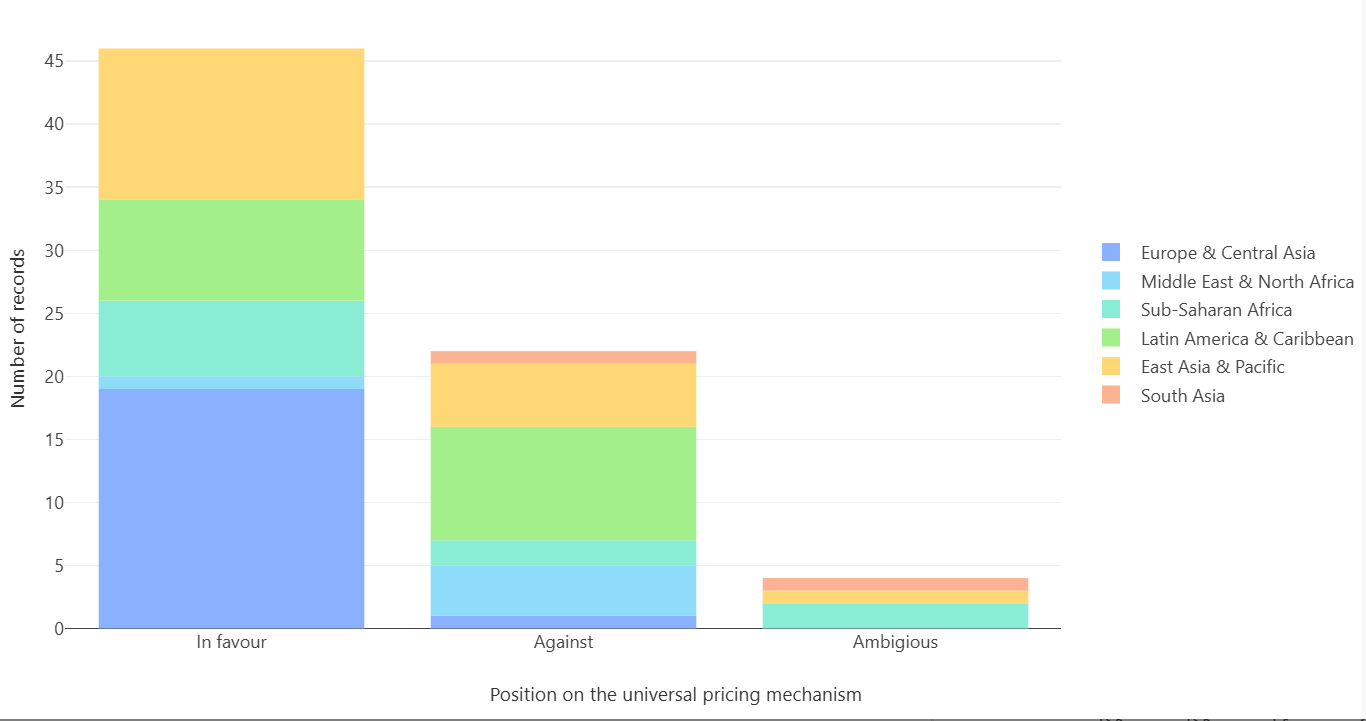
Support grows for the GHG levy, as more countries see it as a viable measure to meet climate and equity goals of the IMO
LONDON : The 18th Intersessional Working Group on GHGs has concluded with the GHG levy in combination with a Global Fuel Standard as the most favoured candidate mid-term measure for reducing GHG emissions from shipping, with majority support across the African participants, SIDS and LDCs and developed economies actively participating in the discussion.
Marie Fricaudet, PhD Student at the UCL Energy Institute, said “The ISWG-GHG 18 meeting has advanced key elements of the MARPOL Annex VI amendment, keeping the process on track for finalization at MEPC 83, but significant decisions remain on the economic measures.”
Whilst the meeting is not in itself a decision point, it is a key meeting leading up to the much-anticipated Marine Environment Protection Committee (MEPC) 83rd meeting to be held in April 2025, which is a decision point for the agreement/approval of the IMO’s mid-term measures. ISWG-GHG 18 closed with successful further ‘tidying up’ of the options and draft language, but with a predictable number of key decisions and further work needed to finalise the draft MARPOL amendment (Chapter 5 and accompanying revisions to other chapters). Overall, the process is on track to achieve finalisation in April following further intersessional dialogue between member states, the final ISWG-GHG 19 meeting, and further work done during MEPC 83 itself.
Dr Annika Frosch, Research Fellow at the UCL Energy Institute, said: “Support for the levy continues to grow, with 66% of MARPOL Annex VI signatories. This reflects a diverse coalition that includes key flag states, including backing from African nations, Small Island Developing States (SIDS), and Least Developed Countries (LDCs).”
The meeting followed on from an IMO expert workshop focused on food security. This reflected in discussions during the week around the subject of revenue distribution. The draft MAPROL amendment has broad support to include a fund, but whilst the architecture discussion remains unresolved, the expected quantum of the fund is uncertain. However, progress was made in discussions around what the fund could be used for, with a range of options (including those put forwards in 18/2/5), being forwarded. There is broad support for revenues to be used to reward (subsidise) early adoption of zero and near-zero GHG emission fuels, as well as RD&D. There is also broad support for using revenues to assist low-income countries, including to address Disproportionate Negative Impacts (which includes in most member state’s preferences the addressing of food security risks). Elements of just and equitable transition are therefore appearing in detail in the draft amendment text. However, there remains a need to finalise a decision on whether an alternative option for reducing risks on low-income countries (a reduction in required GFI for ships servicing certain selected ports), is also included.
Pinar Majidova, Research Fellow at the UCL Energy Institute, said “Revenue distribution remains a central discussion point, with strong support for using funds to accelerate the adoption of zero and near-zero GHG emission fuels, as well as to support a just and equitable transition.”
During the week, in an effort to explore a way forwards without having to choose between the options, the Working Group Chair put forwards a draft of compromise text, based on a paper submitted by Singapore to MEPC 83. This concept, whilst relatively new, was found to be severely lacking in its ability to achieve the core objectives of mid-term measures identified in IMO’s 2023 Revised Strategy i.e. effectively promoting an energy transition and contributing to a just and equitable transition. The concept did not gain support, but will be forwarded in an annex, separate to the core base amendment text for further development at ISWG-GHG 19, remaining an option for further development if required. Further analysis can be found in Section 7 and Appendix of the readout. Link to full readout: https://www.shippingandoceans.com/post/support-grows-for-the-ghg-levy

About UCL Energy Institute
The UCL Energy Institute hosts a world leading research group which aims to accelerate the transition to an equitable and sustainable energy and trade system within the context of the ocean. The research group’s multi-disciplinary work on the shipping and ocean system leverages advanced data analytics, cutting-edge modelling, and rigorous research methods, providing crucial insights for decision-makers in both policy and industry. The group focuses on three core areas: analysing big data to understand drivers of historical emissions and wider environmental impacts, developing models and frameworks to explore energy and trade transition to a zero emissions future, and conducting social science research to examine the policy and commercial structures that enable the decarbonisation of the shipping sector. For more information visit www.shippingandoceans.com

